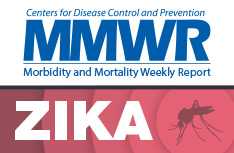Zika and Guillain-Barré Syndrome
Guillain-Barré syndrome (GBS) is an uncommon sickness of the nervous system in which a person’s own immune system damages the nerve cells, causing muscle weakness, and sometimes, paralysis.
- Several countries that have experienced Zika outbreaks recently have reported increases in people who have Guillain-Barré syndrome (GBS).
- Current CDC research suggests that GBS is strongly associated with Zika; however, only a small proportion of people with recent Zika virus infection get GBS.
CDC is continuing to investigate the link between GBS and Zika to learn more.
Symptoms of GBS
GBS symptoms include weakness of the arms and legs and, in severe cases, can affect the muscles that control breathing.
These symptoms can last a few weeks or several months. Most people fully recover from GBS, though some people have permanent damage. Very few people die from GBS.
Causes of GBS
Researchers do not fully understand what causes GBS. Most people with GBS report an infection before they have GBS symptoms. Rarely, vaccination has also been associated with the onset of GBS (for example, the 1976 Swine influenza vaccine).
GBS is rare
An estimated 3,000 to 6,000 people, or 1-2 cases for every 100,000 people, develop GBS each year in the US. Most cases of GBS tend to occur for no known reason, and true “clusters” of cases of GBS are very unusual.
What to do if you are concerned
If you want to know more about the number of GBS cases in a certain area, contact the state or local health department in the state where the cases happen. CDC collaborates with state and local health departments to investigate reports of possibly unusually large numbers or “clusters” of GBS cases.
Additional Resources
Vaccine Safety Concerns- Guillain-Barré Syndrome
Guillain-Barré syndrome and Flu Vaccine: Questions and Answers
- Page last reviewed: August 9, 2016
- Page last updated: August 9, 2016
- Content source:





 ShareCompartir
ShareCompartir